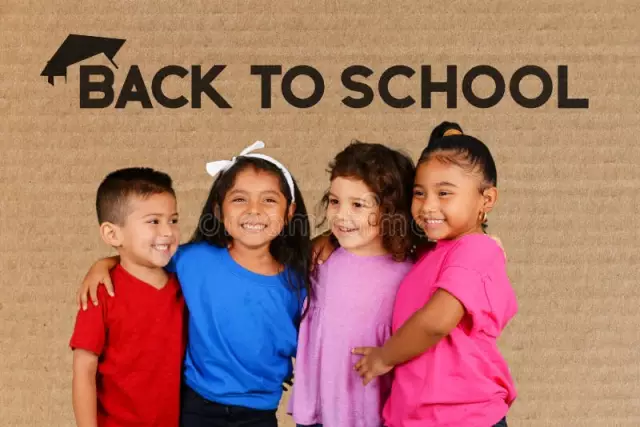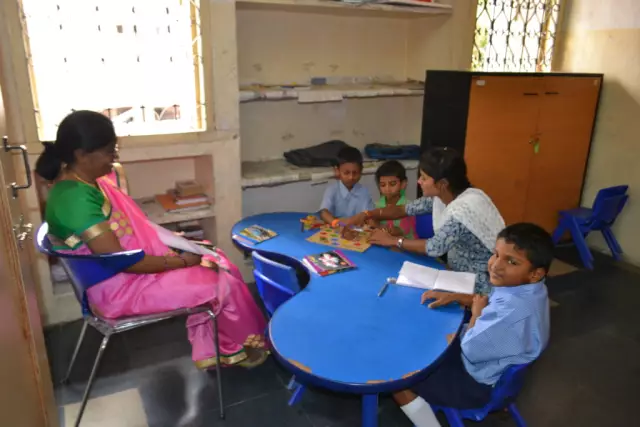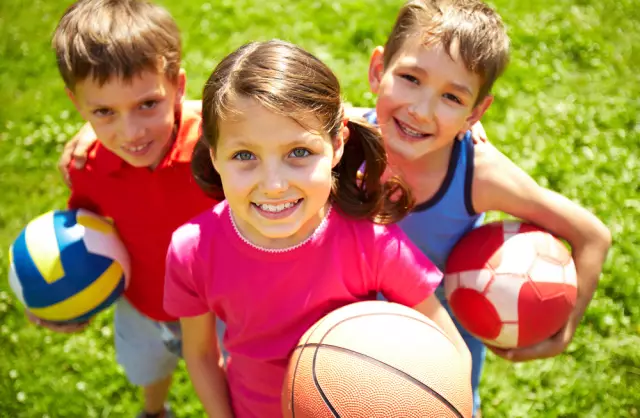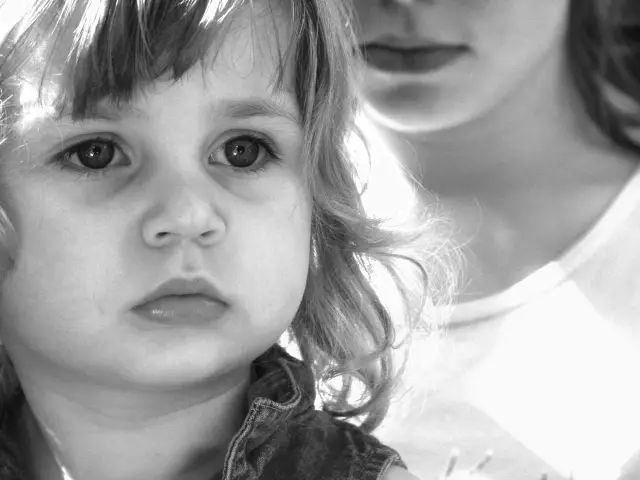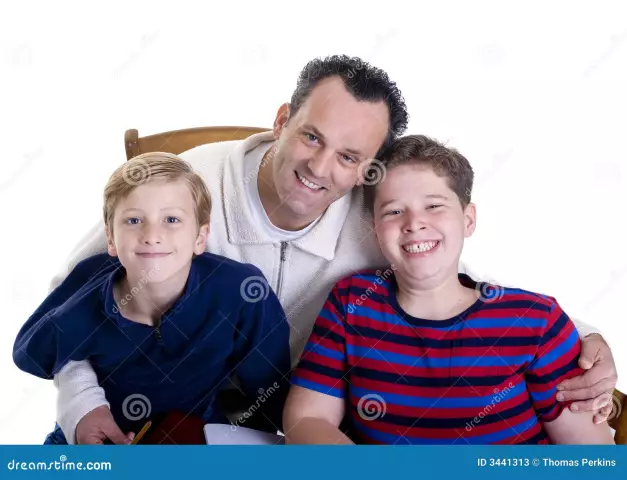- Author Rachel Wainwright wainwright@abchealthonline.com.
- Public 2023-12-15 07:39.
- Last modified 2025-11-02 20:14.
Education of young children
Many parents mistakenly believe that raising a child - reading notations, moralizing, etc., should be dealt with after he learns to speak and at least understand something.

However, this opinion is wrong. It is necessary to start the formation of a small personality from the earliest age of the child, or better, from his birth. Raising young children, taking care of the moral, mental and physical development of the baby will help him develop faster than his peers, and the intensive formation of the child's psyche will affect his entire future life.
Recommendations for parents on raising children under one year old
Most mothers and fathers are perplexed, how can babies, children under one year old be raised? Psychologists and pediatricians unanimously answer: "It is possible and necessary!" Of course, babies will understand little from your soulful speech about how bad it is to throw a rattle on the floor. At such an early age, it would be pointless to take on the formation of a child's actions, but to educate emotions is quite reasonable! And the first thing that parents must form in a baby is a joyful and active state, when the baby babbles a lot, walks, actively makes contact and is happy to improve his motor skills. If the child is affectionately talking with a smile during feeding, changing clothes, walking, etc., the baby is in a good mood and develops well, without wasting his energy on whims and crying.
Having matured a little, the child begins to manifest himself in independent activities - playing with toys, crawling, trying to walk. At this stage, the upbringing of young children is based on expanding their cognitive interest, encouraging the child to pick up the rattle that has fallen on the floor, to get acquainted with various colors, materials, textures. At the same time, you cannot limit the independence of the baby - let him overcome any difficulties that are feasible for him. At the age of 6 months to a year, the child usually begins to distinguish the features of the intonation of adults. Therefore, it is correct when raising young children to apply a strict tone to prohibit inappropriate activities and an affectionate one to approve.
Features of raising children from 1 year to three years
During the first three years of a child's life, the baby's emotions develop at a rapid pace, feelings of joy, satisfaction, interest, and curiosity are formed. These are emotions that can and should be developed, focusing the child's attention on a well-made construction of cubes, an elegant Christmas tree, a beautiful flower, etc.
In the third year of life, the independent activity of the baby becomes more complicated and becomes more diverse: he draws, sculpts, plays, builds, observes, communicates. The child learns to enjoy the game, developing attention, thinking, imagination. While playing, the kid forms for himself ample opportunities for moral education, accustoming himself to share with his peers, to act together, to achieve his goals. Parents should be interested in keeping the child busy with games - but only those that contribute to his mental and moral development. Nevertheless, even with a sufficient number and variety of toys, a child under three years old is likely to play in them in the most primitive way, if the parent does not tell you how to play correctly (cook soup, dress a doll, iron clothes, etc.) …
What advice can you give to parents on early parenting?
According to Japanese scientists, by the age of three, the child's brain is formed by 70% - and what you have managed to lay in your little child by this age will be of decisive importance in his future life. Parents need to take into account the fact that early childhood education is based on two principles: not to force and to interest. At this age, a parent can share with his child the most important thing that he has - neither fundamental knowledge, nor life experience, but the ability to see the world in bright colors, to enjoy every moment of life, to learn with curiosity what surrounds us.
Aksarina: raising young children
Aksarina Nina Mikhailovna - teacher, author of the book "Education of young children". The professor made a significant contribution to the study of pedagogy, developing the principles of social education of young children in the USSR from the point of view of various types of the child's nervous system. Aksarina considered the need to comply with the daily regimen for the full development of babies. According to the teacher, if the wakefulness and feeding sleep regimen is drawn up correctly, children are in a balanced state, fall asleep quickly, sleep soundly and wake up rested. During the entire waking time, they are active and inquisitive, which ensures the full development of babies.
Aksarina, like many other outstanding teachers, said that early childhood education includes physical, aesthetic, moral and labor education. However, the developmental tasks facing the baby in different years of his life are also different. At the age of a child under one year, his nervous system is still not quite strong, even the slightest mistakes, such as malnutrition, lack of sleep, excessive excitement, can cause disturbances in the state of the child's physical and mental health.
Physical education of young children according to Aksarina includes:
- Providing conditions for full and timely physical development;
- Ensuring a balanced and cheerful state of the child;
- Education of cultural and hygienic skills (correct daily regimen, nutrition, health-improving and hardening procedures);
- Creation of favorable conditions for a variety of physical movements of the child;
- Protection and strengthening of his health.
Aksarina's aesthetic education of a child begins at an early age. Children are very receptive, and their aesthetic development is influenced by the whole environment: the tone of the walls in the nursery, fresh flowers, reproductions of paintings, sculpture. A child needs varied and vivid impressions that form his sense of taste: a walk in a beautiful garden, a trip to a pond, a trip to a gallery. However, the most accessible methods of aesthetic education of children are music lessons, songs, dances and fairy tales.
The moral and labor education of a child, according to the teacher, includes:
-
Fostering respectful relationships with adults;

Effective parenting advice for parents - Fostering friendly relationships with children;
- Education of independence, organization, the formation of work skills and rules of behavior in a team;
- Education of moral qualities of a person.
The moral and labor education of young children is based on teaching the child to respect the work of other people and to take his feasible part in it, learning how to dress independently, wash, eat, and clean toys. At the same time, the main task of adults is to evoke in the child an understanding and a natural desire for what is “good” and “necessary”, proportioning their requirements with his individual and age characteristics.
Found a mistake in the text? Select it and press Ctrl + Enter.

